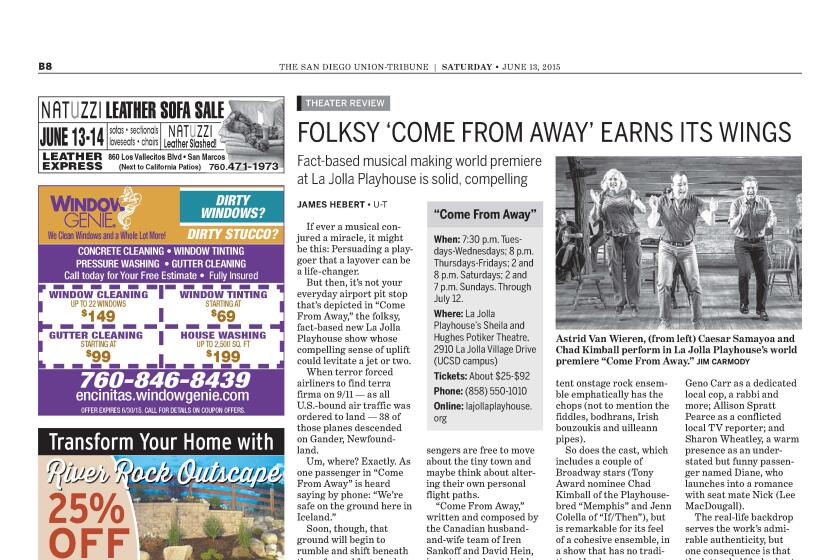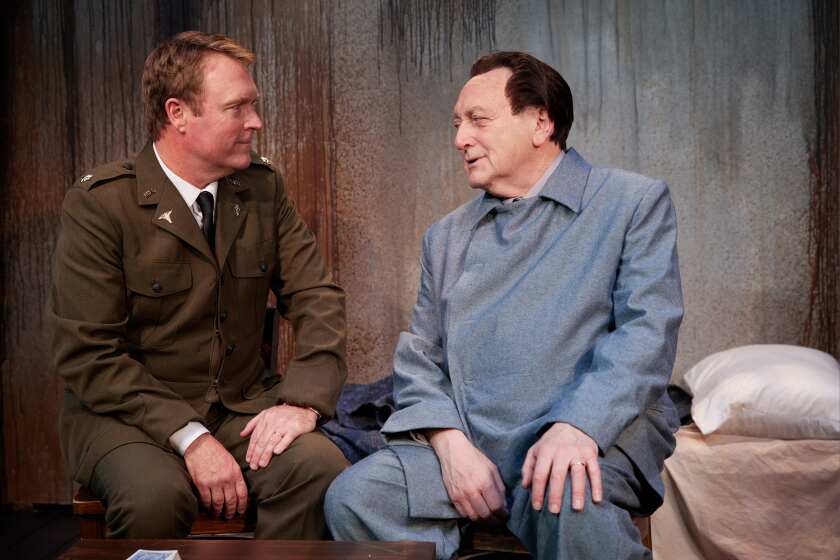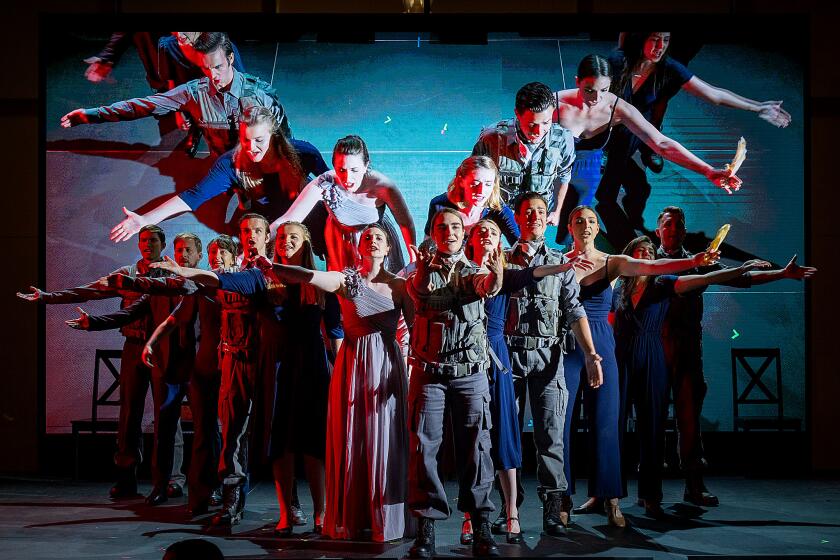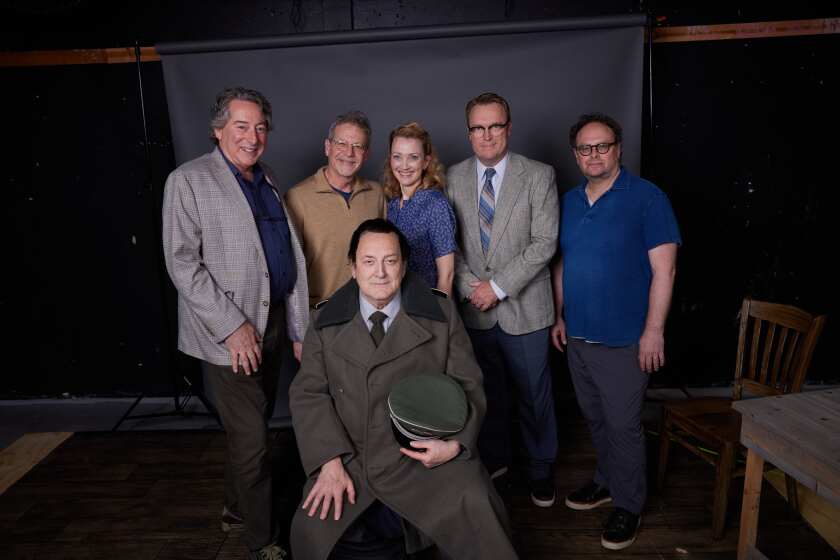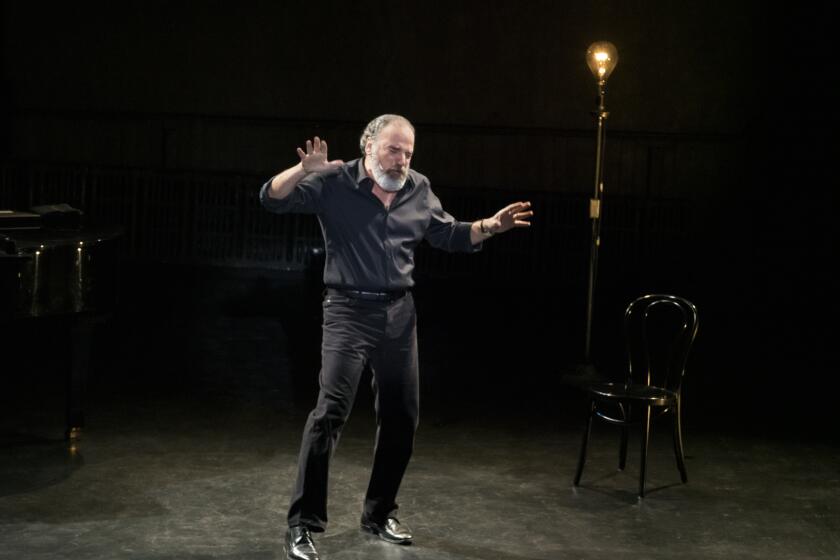‘Constellations’ stirs the head and heart
Old Globe show draws on science to illuminate a couple’s (many) lives
In the certifiably weird world of quantum physics, there’s a maxim that says nothing actually happens until someone is there to observe it.
(And yes, I’m grossly oversimplifying here; physics teachers, please put down those Schrödinger’s pitchforks.)
That idea doesn’t quite apply to the act of observing a play, unless it’s a play on a very tiny, subatomic scale, such as my own long-dreamed-of musical spectacular “The Photon of the Opera.”
“Constellations”
When: 7 p.m. Tuesdays-Wednesdays (plus 2 p.m. April 27); 8 p.m. Thursdays-Fridays; 2 and 8 p.m. Saturdays (no matinee April 30); 2 and 7 p.m. Sundays. Through May 8.
Where: Old Globe’s Sheryl and Harvey White Theatre, Balboa Park.
Tickets: $29 and up
Phone: (619) 234-5623
Online: theoldglobe.org
But if you see the Old Globe Theatre’s compact but fascinating “Constellations” — a play that’s actually structured after a quantum concept — you still might start to feel (or at least imagine) that your own hopes for its two characters are helping drive its progression of episodic, ephemeral scenes.
That’s a measure of how expertly director Richard Seer and his actors, Victoria Frings and Christian Coulson, cultivate our emotional investment in Nick Payne’s unorthodox love story.
“Constellations” takes its cues from the hypothesis of the “multiverse,” an actual (and much-debated) idea in physics. One version of it seeks to address the uncertainty of events on the quantum scale by arguing, essentially, that everything that can happen will happen — with each outcome creating its own universe in parallel with infinite others.
It’s convenient that in the play, Frings’ character, Marianne, is a British physicist who specializes in quantum cosmology. Thus, she’s able to explain some of this to the beekeeper Roland (played by Coulson), and to us.
But well before that happens, we’ve already seen multiple versions of the pair’s meeting and courtship unfold, in sharp, often witty vignettes delineated by the quick-flash dazzle of Bradley King’s lighting effects and the cosmic whoosh of Fitz Patton’s sound design.
A few of the couple’s potential futures together flame out before they start, either because the versions of Nick in question are already married, or he has run into a Marianne variant who is particularly unhinged.
But when one encounter finally takes, we’re launched to the next steps of their story like players advancing to ever-higher levels of a video game.
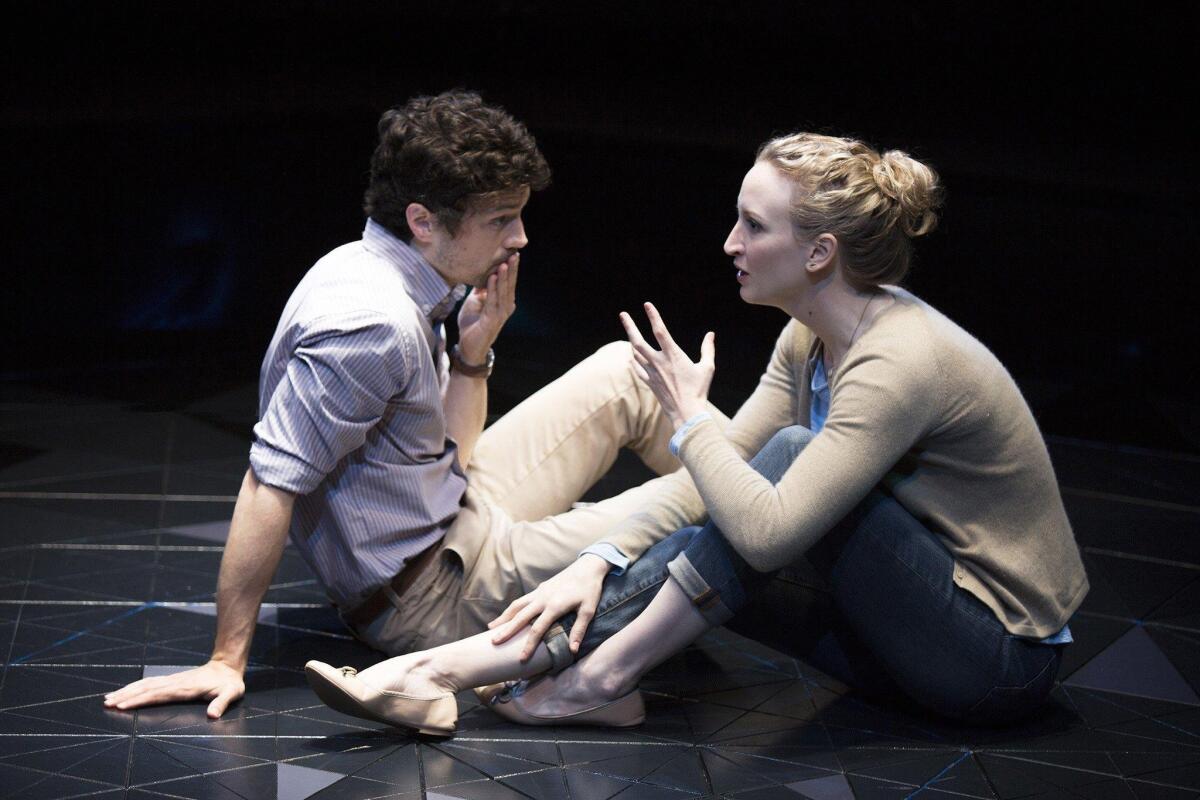
One of the most satisfying aspects of Payne’s writing is the way he also salts in elements from parallel lives we haven’t seen yet, injecting some intrigue and mystery into the piece. In keeping with Marianne’s observation that time never grows short or runs in one direction in a quantum world, the play often circles back and comments on itself.
And that creates one particularly poignant contrast when we hear Marianne say: “I have to have a choice. Control.”
Early on, it seems as though those words are a reflection on the daunting possibility of endless life paths. When the line is uttered again later, though, it becomes clear it’s a specific response to the prospect of those paths winding to an end altogether. And in that context, the pair’s ability to make peace with time is put to the test.
Both actors handle the play’s quick shifts (of both tone and situation) admirably, creating a graceful duet on David Israel Reynoso’s evocative, geometric set, which seems to spin off into infinity.
But it seems doubtful there’s a universe in which Frings isn’t completely charming, assured and agile in her portrayal of Marianne. Her range and grasp of the character (in its many iterations) is especially arresting in a series of scenes where she alternately rejects and accepts Roland’s proposal of marriage, going from coolly dismissive to flustered to adorably gleeful, with an ecstatic physical vocabulary to match.
The connection she and the capable Coulson form doesn’t quite smooth over the show’s somewhat abrupt ending (and this is a short play to begin with, running a little over an hour).
But “Constellations” succeeds in matching matters of the heart with delights for the mind.
Get U-T Arts & Culture on Thursdays
A San Diego insider’s look at what talented artists are bringing to the stage, screen, galleries and more.
You may occasionally receive promotional content from the San Diego Union-Tribune.

